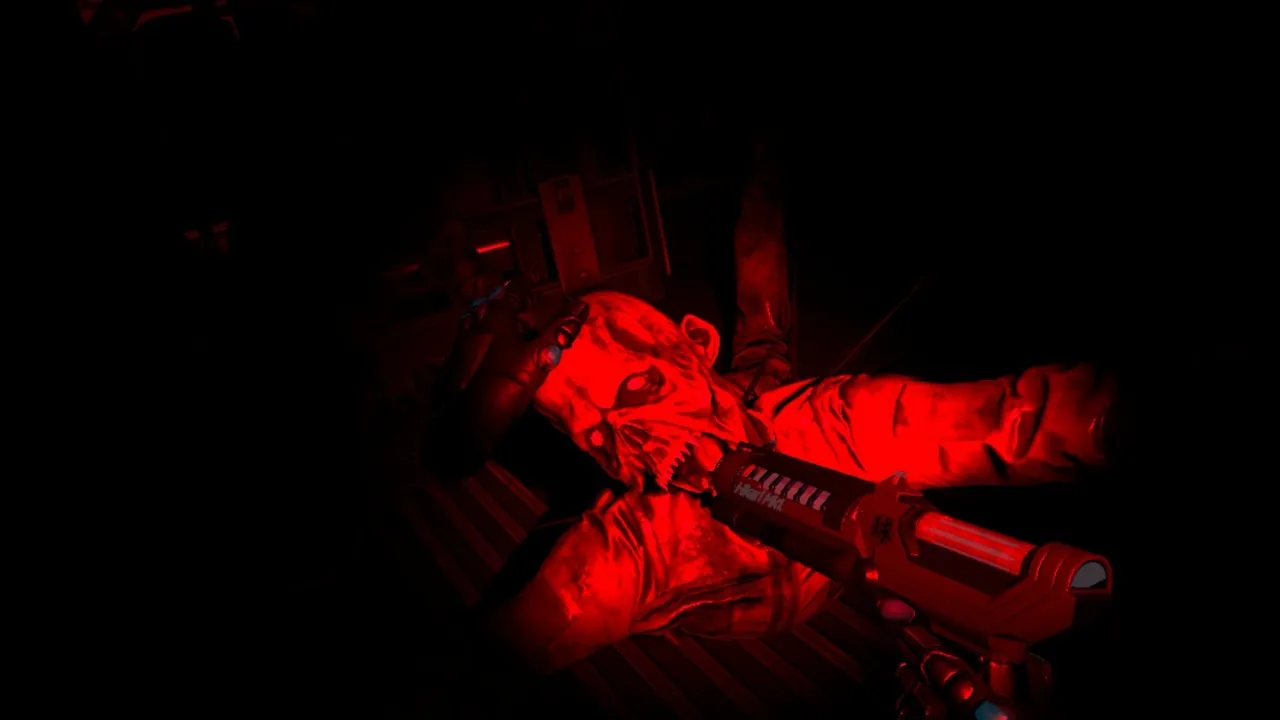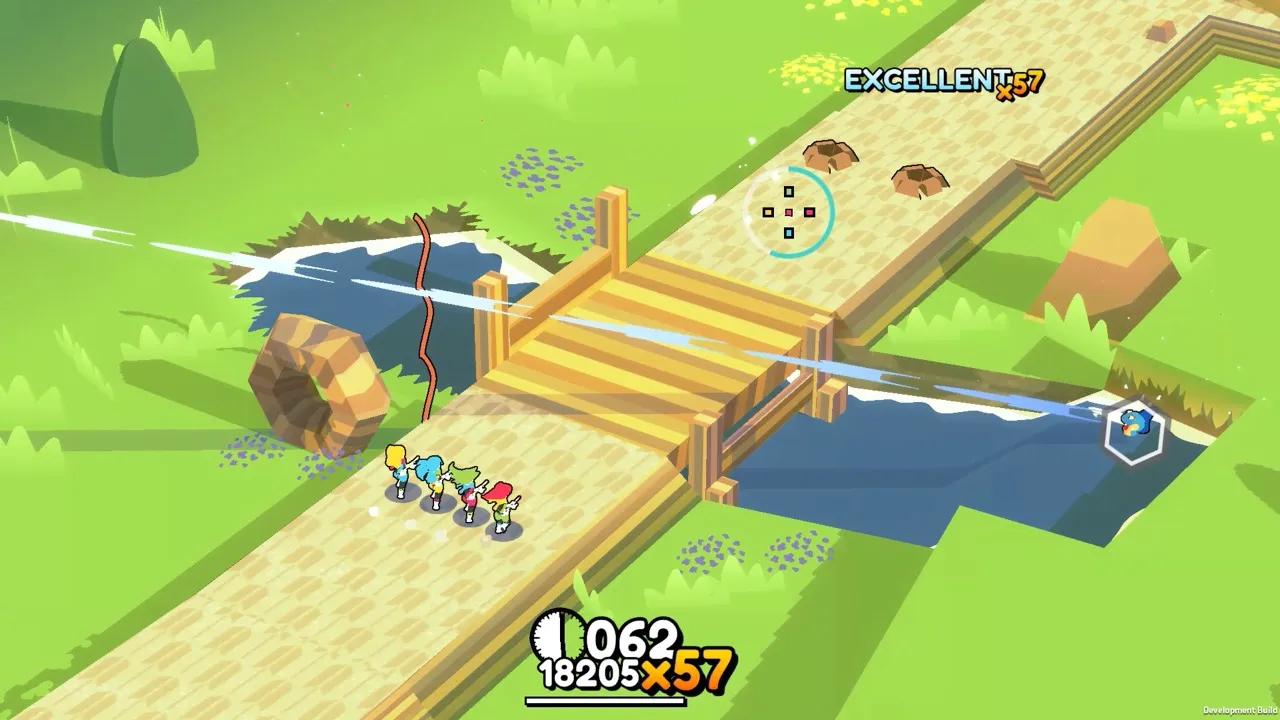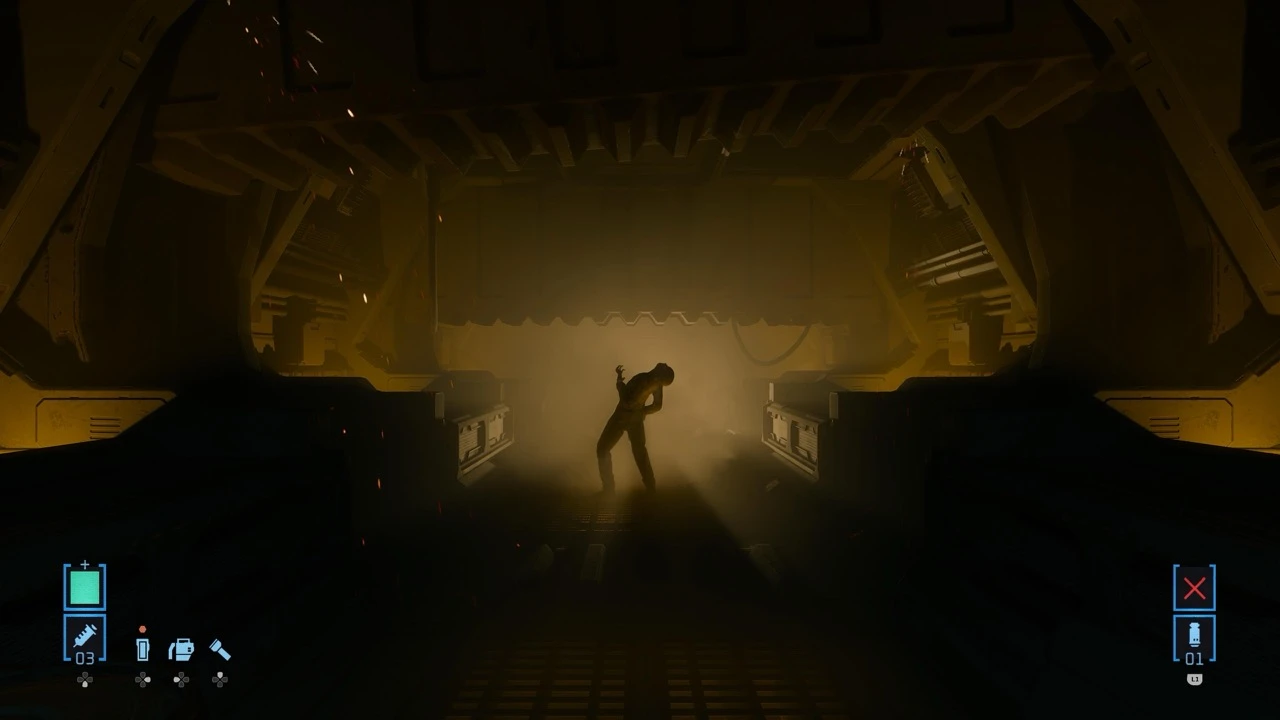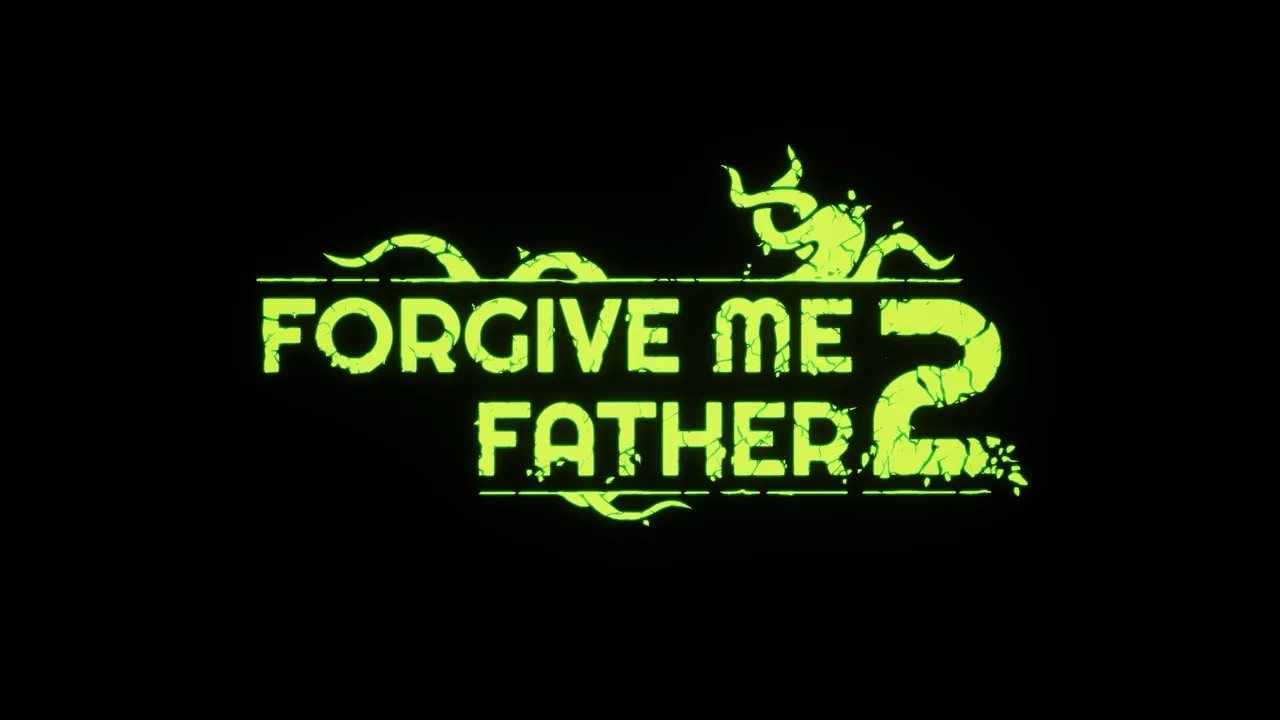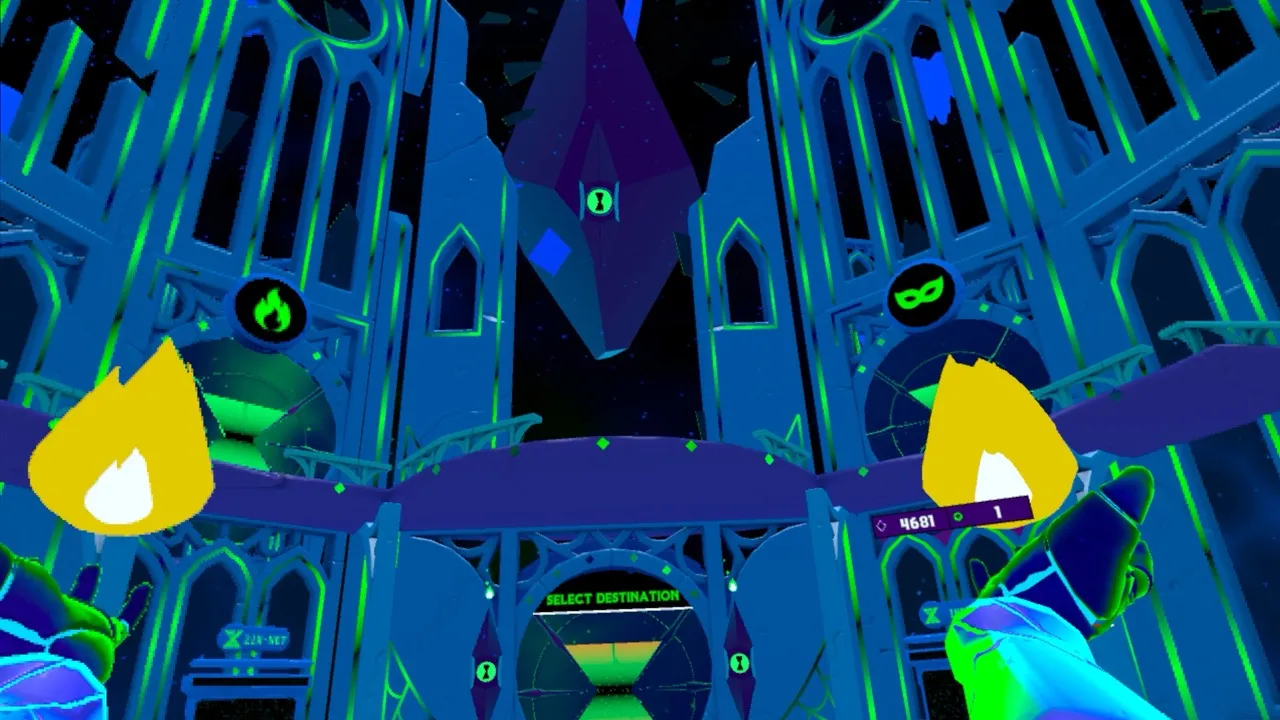Memoreum is an atmospheric shooter with strong sci-fi storytelling, big cinematic moments, and just enough jank to remind you it's built for standalone VR
Memoreum is one of those games that immediately grabs you with its premise. You wake up on the last surviving ship of humanity, a massive, decaying ark drifting through space, and everything has gone horribly wrong. An infection called Ichor has spread, transforming crew members into grotesque monstrosities, and your only hope for answers lies in using an experimental device called the DreamWeaver, capable of diving into the memories of others. Yeah, it's weird, but also incredibly compelling. And although it wears its influences like Dead Space, Aliens, and Resident Evil proudly on its sleeves, it never feels like a straight copy. There's enough original DNA here to make Memoreum stand tall as its own beast — unsettling, action-packed, and wildly immersive.
Watch this TikTok video
You play as Dr. Otto Hudson, a scientist just yanked out of cryo-sleep and thrust into a spiraling mess of infection, madness, and shady human behavior. The story tries to unravel through logs, emails, ghostly visions, scattered survivors, and of course, the DreamWeaver memory dives, but honestly, it gets a little chaotic. There's a rogue AI, some survivors, an eerie little ghost girl, and a general sense of “what is even real anymore?” which kind of works, thematically. It's a bit of a blur at times, and I definitely didn't catch every narrative thread, but it feels interesting. Like something worth piecing together if you're willing to dig into the lore and pay close attention to the environmental clues scattered across the ship.
Gameplay-wise, Memoreum is more of an action horror game than survival horror. You are not scraping by with a single bullet and a prayer here. You're equipped. And the game gives you tools, lots of them. Your left shoulder is home to a physical backpack you can grab Metro Awakening-style. It holds all your essential tools and up to three usable items like syringes or bombs. Throughout the campaign, you'll get your hands on a blowtorch for cutting beams, a scanner for detecting power lines, an electric screwdriver to open up vents, and a hacking device for doors and terminals. These tools make exploration and puzzle-solving consistently engaging and tactile. You are not just watching things happen, you are physically manipulating the world around you, unscrewing panels, torching open doors, prying apart access points. It all feels satisfying.
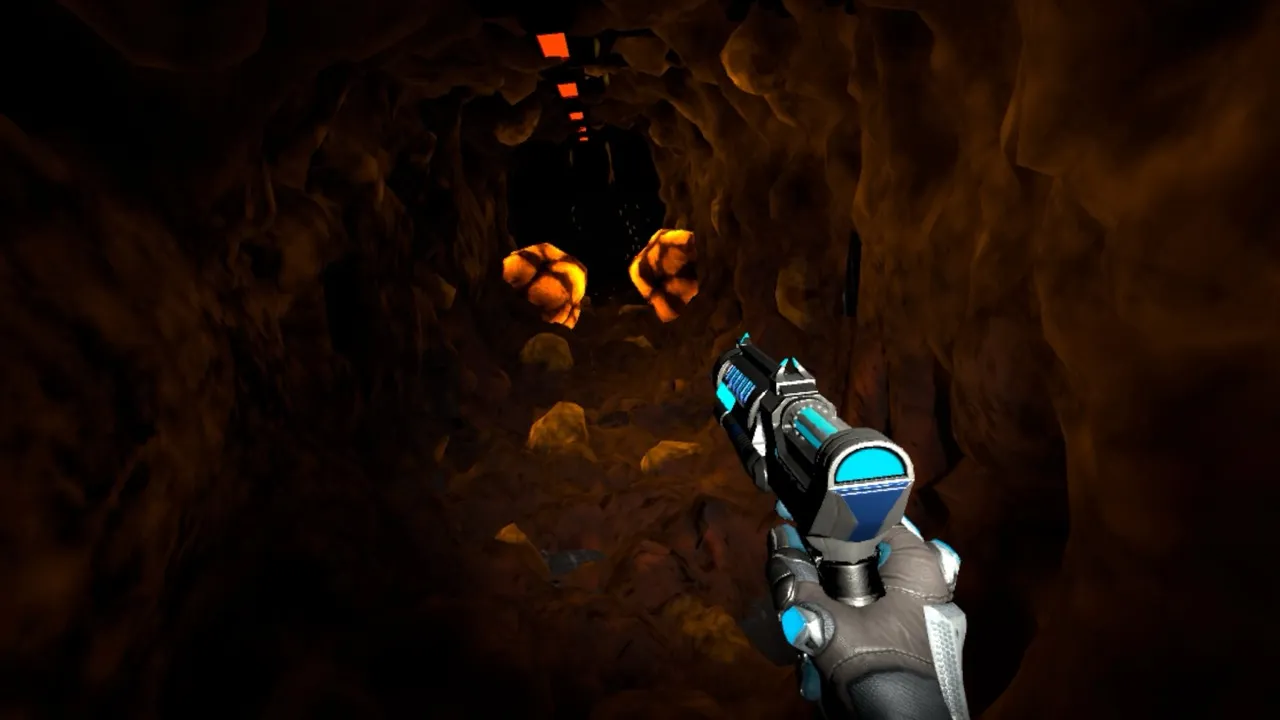
The ship is fairly large, with multiple levels and areas to explore, but it's not like an open-world game. In the hub area, after you get a mission, you ride the tram to a new area of the ship, complete your objective, then return to a hub zone where the next story bit happens and so on. In the hub area, you can craft weapon upgrades using the 3D printer or interact with the small handful of survivors. It's a smart system that keeps things focused and manageable, even though the ship itself feels pretty large and interconnected.
Your main weapon is the Chimera, a multi-function firearm that can morph into a variety of gun types — SMG, shotgun, sniper rifle, semi-auto, all depending on the modules you print and equip. It's a great idea and adds a layer of customization and tactical flexibility to combat. Later in the game, you can also find exotic weapons like a double-barrel Doom-style shotgun or a powerful railgun, and those definitely pack a punch. You're also given a standard electric pistol with infinite ammo, which acts as a decent backup when you run low on ammo — though, truth be told, that doesn't happen often.
Watch this TikTok video
That's because, for a horror game, Memoreum is surprisingly generous with resources. Ammo is everywhere. You can also like just buy it from vending machines all over the ship. You're rarely backed into a corner or outgunned. And while that can be fun in an “action movie in space” kind of way, it also removes a bit of the tension you'd expect from a horror title. Enemies, both mutated Ichor abominations and human guards with rifles, are more creepy than dangerous. Most of the time, you can simply walk backwards and blast them until they fall over. There is a dismemberment system in place, which lets you shoot off glowing pustules on enemies to sever limbs, but in practice, it's just easier to empty a clip into their heads or torsos and move on. They'll crumple in a ragdoll heap eventually.
Boss fights, however, are a different story. These are the moments where Memoreum really shines. They're tense, cinematic, and often accompanied by chase sequences that get your pulse racing. There's a handful of excellent jump scares too, and let me tell you, crawling through vents is never a good idea in this game. The way they build dread and deliver those scares is commendable. It's not overused or predictable, which keeps the experience fresh and effective throughout the runtime.
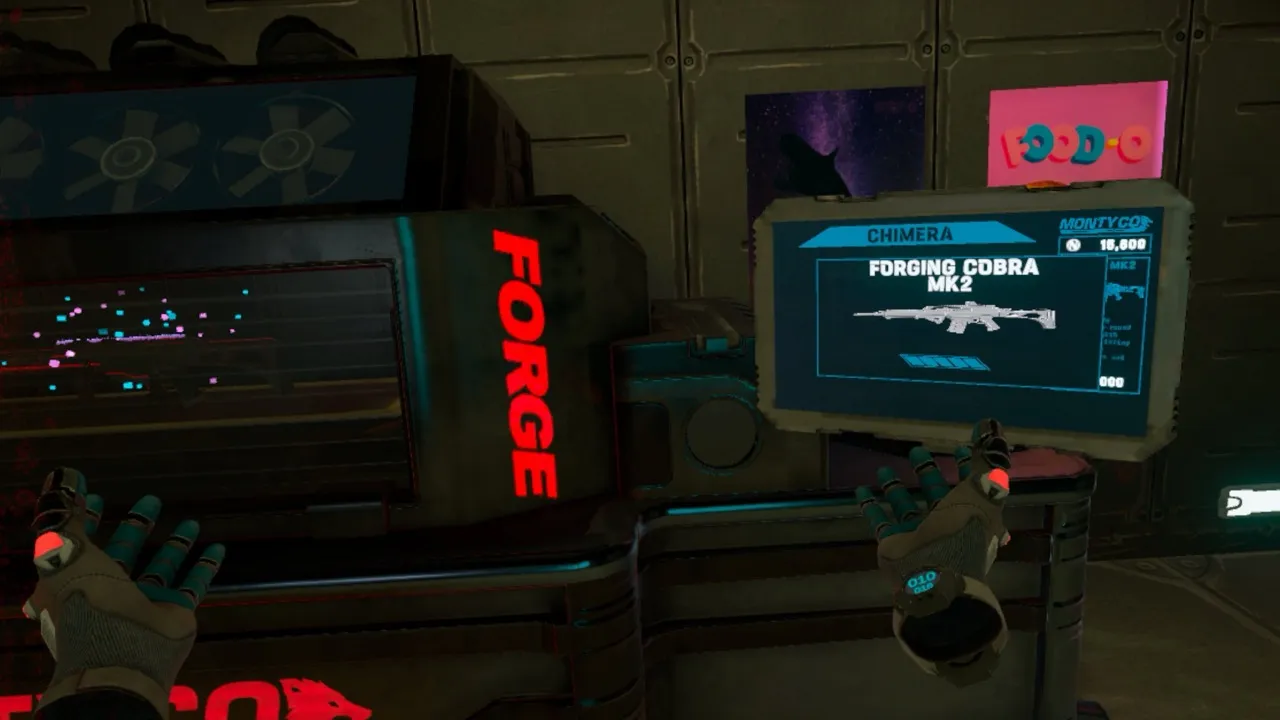
One thing that deserves praise is the overall art direction and design. The interiors feel like a mix between a space station, a corporate lab, and an industrial nightmare. Each new wing has its own distinct aesthetic, and the lighting choices play a big role in setting the tone. Flickering reds, ominous shadows, green glows leaking from infected machinery, it's got all the ingredients to make you feel constantly on edge. This is a place that has gone completely off the rails and the environmental storytelling supports that feeling beautifully.
Unfortunately, while the art direction is great, the technical fidelity is where Memoreum falters. This game was clearly built with the Quest 2 in mind, and it shows. On Quest 3, the resolution, texture quality, and overall visual sharpness are noticeably underwhelming. Many assets feel flat or muddy, models are low poly, and there's a general lack of polish that holds back the immersion. This is especially frustrating because you want to lose yourself in this world, but the visuals occasionally yank you back out of it. It desperately needs a proper Quest 3 upgrade patch to bring it up to par with what the newer hardware can deliver. Fingers crossed that's in the pipeline.
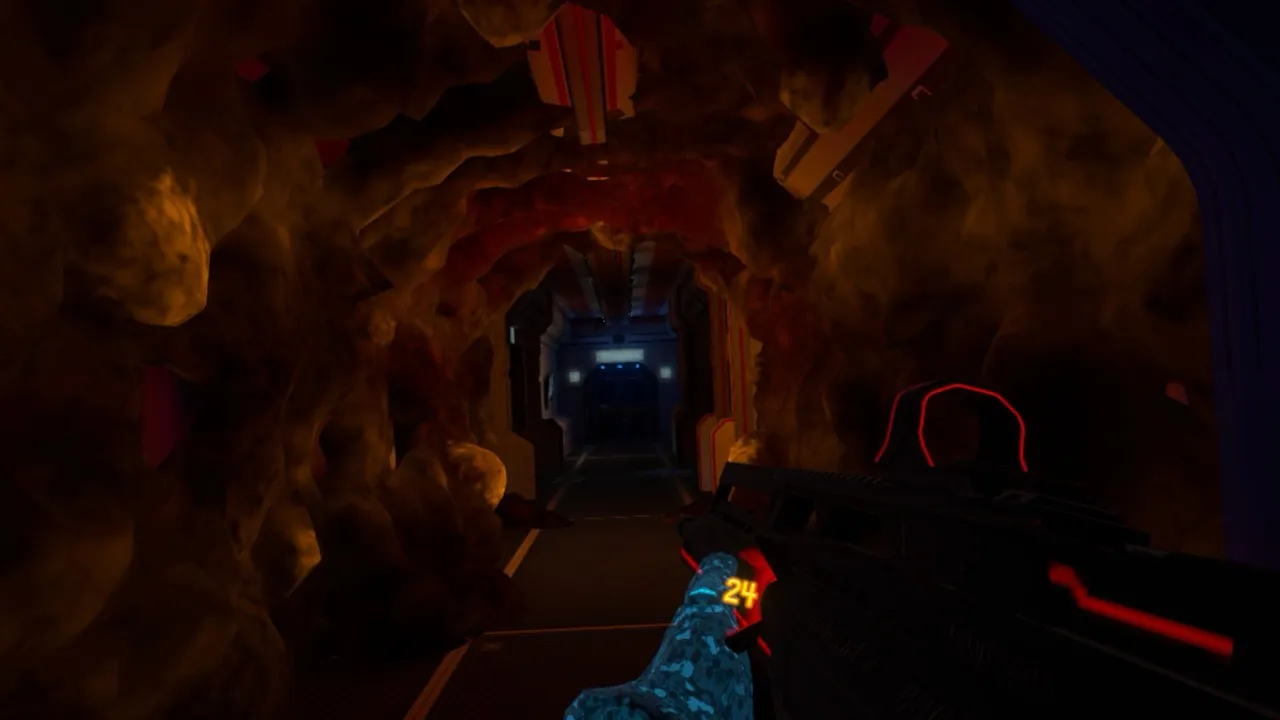
Inventory management is also a bit clunky. While your tools and consumables are easy enough to grab from your shoulder, the side pouch where you store key items like ID cards, bottles, or a robotic arm (yep, that's a thing) is awkwardly placed. It works fine when you only have a few items, but once it starts filling up, selecting the right one becomes frustrating. I had a moment where I needed a keycard but couldn't grab it because the robotic arm was sitting on top of it in the menu. Not ideal in the middle of a tense section. Another thing that happened to me a couple of times is that key items like a key card I needed to progress got yeeted out of the level geometry when an explosion occurred next to it. Now some jank in VR games is to be expected, but when the jank forces you to restart a section of the game, it's not fun.
But despite all of that, I really like Memoreum. It's got heart. It's got style. It's got ideas. It may not reinvent the wheel, and it may stumble with some technical and gameplay balance issues, but what's here is a robust, memorable, and often thrilling action horror experience that plays to VR's strengths. The physicality of the exploration, the variety of tools, the creative weapons, and the overall vibe of the infected ship all come together to deliver something special.
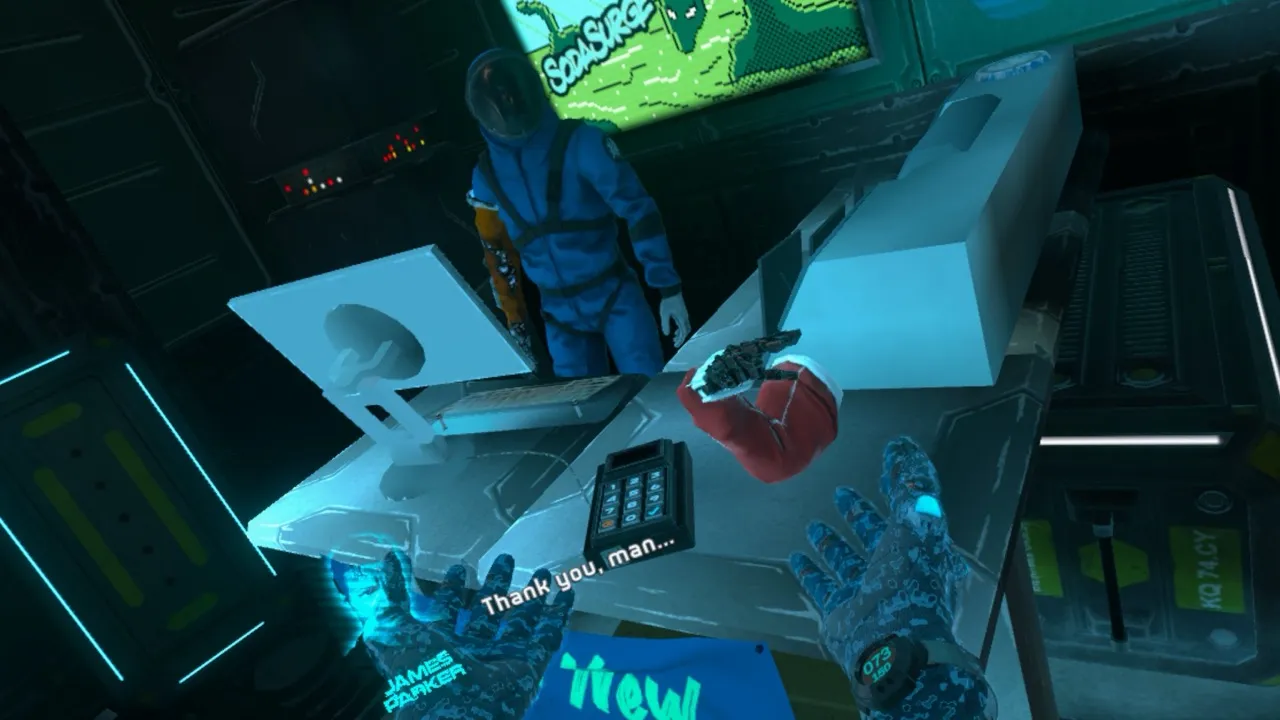
Memoreum might not be the prettiest game on the Meta Quest 3, and its combat could definitely be more challenging, but it makes up for those flaws with ambition, atmosphere, and solid moment-to-moment gameplay. It's packed with memorable set pieces, unsettling encounters, and a whole lot of creepy corridor crawling. Here's hoping future updates polish up the visuals and add a bit more bite to the combat, because with just a bit more refinement, this could be one of the best sci-fi horror titles on the platform. I still, even now, strongly recommend this game. Thanks for reading!
The game was reviewed on a Quest 3 via a promo copy provided by the developer. Memoreum is available on Meta Quest and PCVR.
